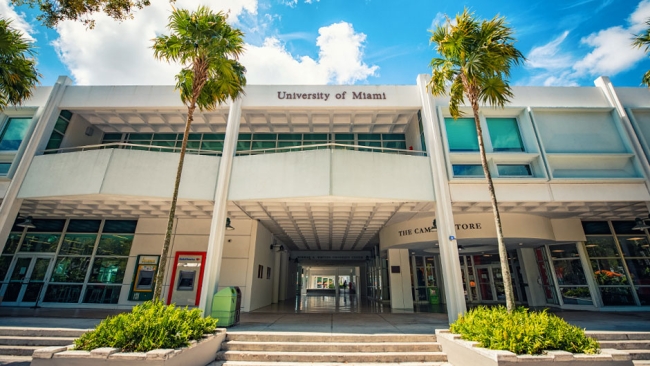You have /5 articles left.
Sign up for a free account or log in.

University of Miami
With the coronavirus pandemic, most colleges have dropped standardized testing requirements for undergraduate admissions.
While not motivated by COVID-19, the University of Miami -- after votes by its Graduate Council and Faculty Senate -- approved a proposal to remove the Graduate Record Examination and the Graduate Management Admission Test from most of the university's 216 master’s and doctoral programs. The changes do not apply to the law school or the M.D. program in the medical school.
The push came from the university's Graduate School dean, an alumnus, Willy Prado. A first-generation college student and an English language learner, Prado was satisfied with his score on the math section of the GRE but felt his verbal total was not a great reflection of his ability. He was still admitted to the University of Miami and went on to earn both a master’s degree and a Ph.D. in epidemiology and public health. But Prado said he fears the test discourages others.
“Even as a faculty member, I always felt that the GRE was not a good predictor of student outcomes,” said Prado, who is also the university’s vice provost for faculty affairs. “Now there is a lot more evidence that shows that there are limitations to these standardized test scores, and that they are not able to predict success in a number of fields.”
The Education Testing Service, which runs the GRE, defends the test.
David Payne, vice president and chief operating officer of the Global Higher Education Division at ETS, said via email, "Dropping the GRE score requirement is a mistake, especially when the rationale is because 'GRE scores don’t predict student outcomes' -- GRE scores have always provided evidence of critical skills needed for success in graduate school, but the test was never designed to predict all outcomes, like research productivity. This and other measures of graduate student success, such as degree completion, are influenced more by program satisfaction and changes in work and life status -- circumstances that tests of academic skills or undergraduate achievement cannot predict. Further, GRE scores have opened doors for those who had fewer socioeconomic resources and educational experiences than their peers."




